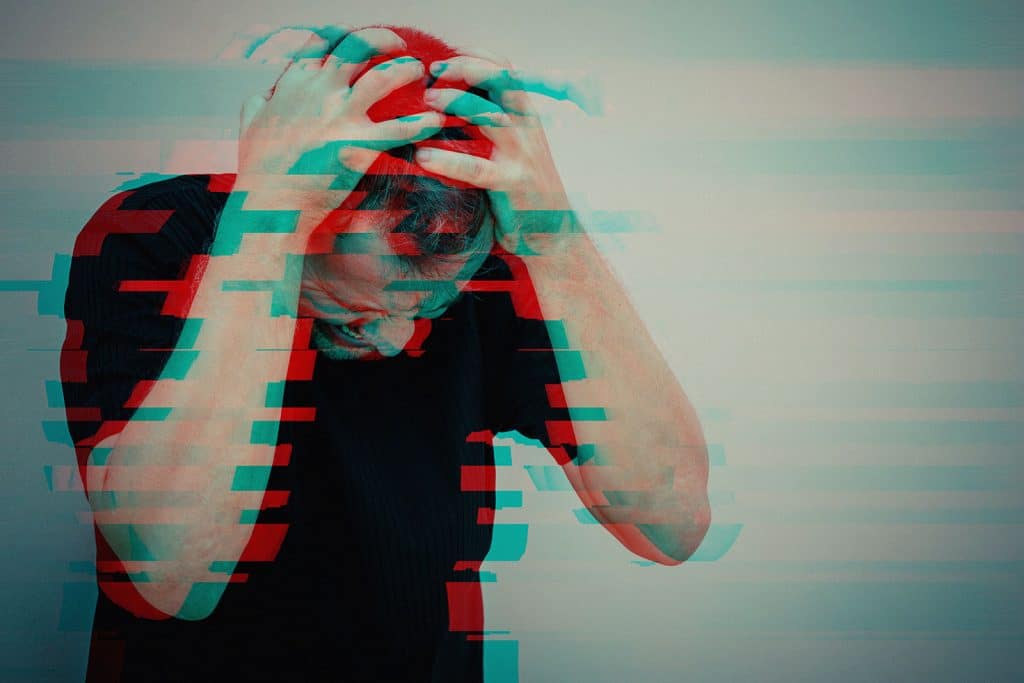By definition, anxiety is an intense feeling of fear, dread, or uneasiness that can trigger physical changes in the body, such as profuse sweating, rapid heartbeat, and elevated blood pressure. According to the U.S. Department of Health and Human Services, five types of anxiety disorders can elicit such feelings: generalized anxiety disorder (GAD), obsessive-compulsive disorder (OCD), post-traumatic stress disorder (PTSD) due to a traumatic event, panic disorder, and social anxiety. In a separate study published by the National Alliance on Mental Illness, researchers revealed some 40 million Americans struggle with one or more of these anxiety disorders. As difficult as life can be for someone with a social anxiety disorder, things can get considerably worse if substance abuse becomes part of the equation. When someone struggles with a mental illness, such as anxiety panic attacks alongside a substance use disorder, they have what is known as a co-occurring disorder.
Table of Contents
CO-OCCURRING DISORDERS IN AMERICA: THE REALITY OF LIVING WITH ANXIETY AND A SUBSTANCE ABUSE PROBLEM
Although seldom discussed, co-occurring disorders, also known as dual diagnoses or comorbidity, are exceedingly common in the United States. And one needs only look at a study published by the National Institute on Drug Abuse (NIDA) to discover just how common it is. In that study, researchers revealed roughly 25% of Americans with a mental illness also have a substance abuse problem, which is, by definition, what it means to have a co-occurring disorder. In addition to anxiety disorders, many of these individuals also struggle with the following mental illnesses:
- Attention-deficit hyperactivity disorder (ADHD)
- Bipolar disorder
- Conduct disorders
- Major depressive disorder
- Mood disorders
- Post-traumatic stress disorder
- Schizophrenia

Some of the substances that individuals with a dual diagnosis or co-occurring disorder typically abuse include the following:
- Alcohol
- Benzodiazepines
- Cocaine
- Marijuana
- Methamphetamine
- Stimulants
Many of the roughly 21 million Americans struggling with a substance abuse problem are simultaneously struggling with anxiety, and in many cases, genetics are to blame. Studies show individuals with a family history of anxiety disorders are more likely to develop them themselves than someone who does not have a family history of them. And when they do, many turn to drugs or alcohol to self-medicate, and in doing so, many develop an addiction that worsens their struggles with anxiety, meaning they struggle with even more intense feelings of fear, dread, and uneasiness. The same applies to many other symptoms of anxiety-related conditions, some of which include the following:
- Restlessness
- Irritability
- Shortness of breath
- Tremors
- Headaches, fatigue, and insomnia
- Stomach upset
- Frequent urination or diarrhea
A CLOSER LOOK AT THE ROLE GENETICS PLAY IN THE DEVELOPMENT OF ANXIETY AND CO-OCCURRING DISORDERS
According to a study published in the bi-monthly, peer-reviewed medical journal Psychiatry and Clinical Neurosciences, genetic predisposition accounts for the development of some 30% to 50% of all anxiety disorders in the U.S. Several other studies echoed similar findings. One study, in particular, revealed that some of the genes individuals inherit from their parents can drastically increase their chances of developing generalized anxiety. Those same genes can also increase their chances of suffering from panic disorder, obsessive-compulsive disorder, social anxiety or social phobia, and many other specific phobias. Since we are on the topic, it is worth noting that certain life events can also contribute to anxiety disorders for some people. Examples of these life events include physical or emotional abuse, the death of a loved one, and being diagnosed with a chronic illness.
WHAT TREATMENTS ARE AVAILABLE TO INDIVIDUALS STRUGGLING WITH A CO-OCCURRING DISORDER?
Overcoming a co-occurring disorder is harder than overcoming a stand-alone addiction or mental illness, but it’s not impossible. Many people have done it; however, they did not do it alone. Often, overcoming a dual diagnosis or co-occurring disorder requires seeking help from a licensed rehab facility well-versed in addiction recovery programs, including substance abuse treatment and mental health issues intervention. This is because complete recovery requires a two-pronged approach. According to the Anxiety and Depression Association of America, successfully treating a dual diagnosis or co-occurring disorder requires psychotherapy and pharmaceutical drugs.
Psychotherapy To Treat a Co-occurring Disorder
Although several types of psychotherapy can help individuals trying to overcome a co-occurring disorder and treat anxiety, most therapists in rehab facilities across the U.S. consider cognitive-behavioral therapy (CBT) their go-to. When someone begins CBT sessions with a licensed therapist, they learn how to identify and change self-defeating thoughts that usually trigger feelings of anxiety and, to some extent, insecurity. During these psychotherapy sessions, individuals also learn new and healthier ways to cope with the feelings of anxiety that previously led to them turning to drug use or alcohol abuse to self-medicate. Each CBT session with a licensed therapist lasts about 30 to 60 minutes, and it can take anywhere from 12 to 20 weeks to get through all of the required treatment sessions.

Pharmacotherapy To Treat a Co-occurring Disorder
The second part of the two-pronged approach necessary to overcome a co-occurring disorder usually involves pharmacotherapy. For those who abuse hard drugs, such as opioids and methamphetamines, pharmacotherapy might include prescription drugs approved by the Food and Drug Administration (FDA) to help ease severe withdrawal symptoms that often go hand-in-hand with detox. Some of these FDA-approved prescription drugs may include the following:
- Methadone
- Buprenorphine
- Naltrexone
- Acamprosate
- Disulfiram
- Clonidine
- Lofexidine
Along with these medications, most rehab facilities, including Garden State Treatment Center, a treatment facility provider and fully accredited addiction treatment program located in New Jersey, will provide individuals with prescription medications that can help ease symptoms specific to their anxiety disorder. These medications primarily consist of selective serotonin reuptake inhibitors (SSRIs), a class of drugs commonly prescribed to treat depression, anxiety, and several other mental health disorders and other mental health conditions. Examples of SSRI drugs include Lexapro, Celexa, Zoloft, Prozac, and Paxil.
Are there any side effects or risk factors taking these medications?
These drugs are considered not only highly effective treatment of anxiety for you or your family member but also safe when taken as prescribed by a licensed physician. As far as the mechanics behind them, all SSRIs more or less work the same insofar as they each help ramp up the production of serotonin in the brain. To appreciate how this can benefit someone struggling with anxiety, it helps to know a little more about serotonin. Essentially, serotonin is a monoamine neurotransmitter that, among many other things, regulates mood. When someone takes an SSRI drug, it floods their brain with serotonin, which, in turn, puts an end to the negative thoughts, irrational fears, and constant worrying synonymous with anxiety disorders.
Conclusion
Anxiety and substance abuse can and often do go hand-in-hand. That said, the best way to improve one’s chances of putting both of these demons to bed is to seek the help of a licensed rehab facility that knows a thing or two about co-occurring disorders. Bearing that in mind, if you live in New Jersey and have a problem with both anxiety and substance abuse, consider speaking with a Garden State Treatment Center associate today for the best treatment options and healthcare for you or your loved ones and get the help you need to get your daily life back on track.
FAQ
How do I know if I’m struggling with anxiety or addiction?
Published on: 2022-11-28
Updated on: 2024-06-27



